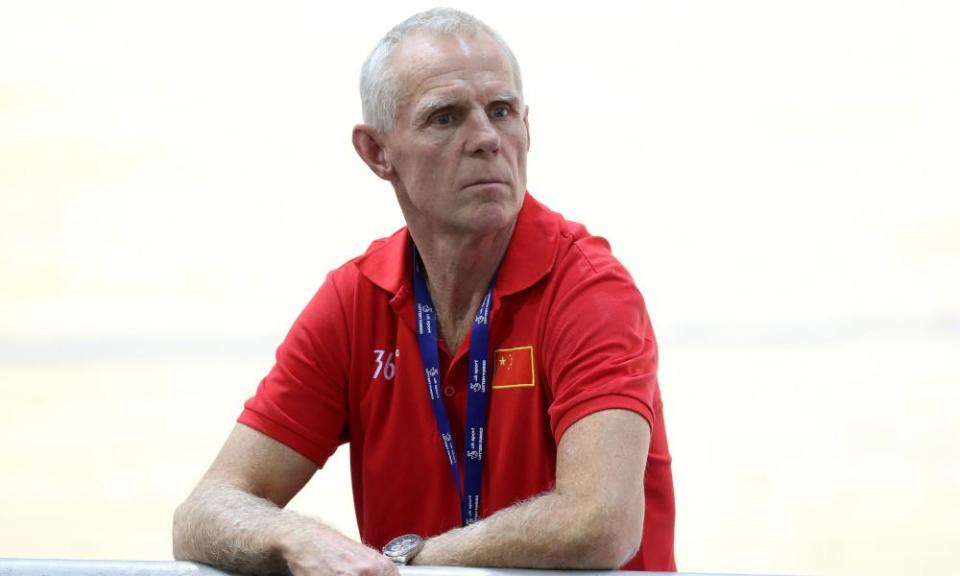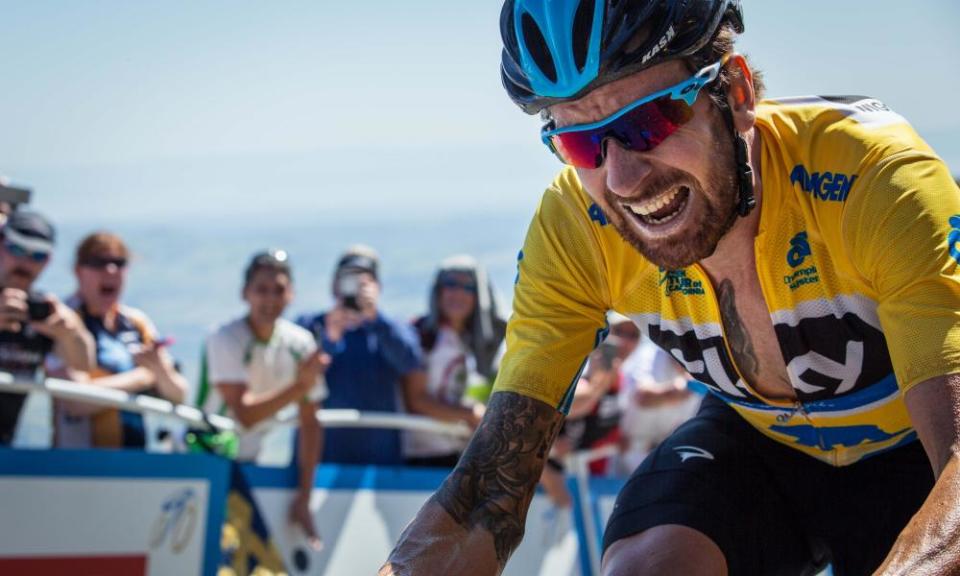Shane Sutton defends Bradley Wiggins’s use of TUEs for ‘marginal gains’

Sir Bradley Wiggins’s former coach Shane Sutton has told a BBC documentary that he regarded therapeutic use exemptions (TUEs) as a legitimate way of finding “marginal gains” while staying within anti-doping rules.
The five-times Olympic champion’s use of the corticosteroid triamcinolone on three occasions in 2011, 2012 and 2013 was within the rules because of his doctor’s successful application for the TUEs; his contention has been that the drug – which is widely viewed as performance enhancing and is on the banned list if not used with a TUE – was necessary to treat his pollen allergies. Documents shown to the Guardian in September 2016 showed that the relevant consultants’ letters had stated that the use of the drug was appropriate and the applications were in order.
Sutton was interviewed for the documentary Britain’s Cycling Superheroes: the Price of Success, which investigated the controversies that have beset Team Sky and British Cycling in the past 14 months.
Sutton, who is now a coach with China, said: “If you’ve got an athlete that’s 95% ready and that little 5% niggle or injury that’s troubling them, if you can get the TUE to get them to 100%, of course you would in them days.
“The business you’re in is to give you the edge on your opponent and ultimately it’s about killing them off but you definitely don’t cross the line and that’s something we’ve never done.”
Asked if “finding the gains might mean getting the TUE”, Sutton repeated the question, before adding: “Yes, because the rules allow you to do that.”

The documentary, to be shown on BBC2 at 9pm on Sunday, appears in the same week that UK Anti-Doping revealed it was closing its inquiry into the contents of a Jiffy bag delivered to Team Sky at the Critérium du Dauphiné in 2011 because it had been unable to find definitive evidence. Wiggins denied that he had committed any wrongdoing and described the inquiry as a “malicious witch hunt”.
The Team Sky general manager, Sir Dave Brailsford, was also interviewed for the programme and said he felt the process had been above board. “If an athlete is hampered by an illness and there is a medication they can have and the TUE criteria are met, then they should [have it]. If Wada and the UCI signed this off and it was all absolutely clear and above board then I was comfortable with that.”
However, the timing of the TUEs has raised questions, coming each time immediately before three major objectives: the 2011 and 2012 Tours de France and the 2013 Giro d’Italia. The drug-taker turned anti-doping campaigner David Millar expressed a damning view of the affair when questioned by the BBC.
“They were gaming the system. I think that’s quite obvious. I think we all know that. It’s just hugely disappointing. Team Sky were zero tolerance, so you would think that zero tolerance would mean you weren’t going to tread into that very grey area which is cortisone use. When I heard that, a little bit of me died to be honest.”

 Yahoo Sport
Yahoo Sport 





































